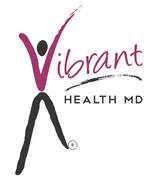Choline
Function:
Choline is an essential nutrient that is part of cell membranes and is used by nerves to send impulses. Choline is known to be essential for mammals, and is essential for human cell growth. A dietary requirement for choline in humans has not been proven, although recent data on infants and dietary choline depletion in adults suggests that choline is an essential nutrient. Historically, choline is considered as a lipotrope and members of the B vitamin complex. Choline has several distinct functions. First, choline serves as a source of one-carbon unites (methyl groups) for biosynthesis of other compounds. Interactions with methionine, Vitamin B12, folate, ethanolamine, and betaine allow choline to partially replace, or be replaced by other constituents in one-carbon metabolism. Second, choline is a component of phoshatidyl choline, the major component of cell membranes. Lecithin is a commercial name for phospholipids containing 10-35% phosphatidyl choline. Phosphatidyl choline has interactions with cholesterol and lipoprotein metabolism.
Deficiency Symptoms:
Symptoms of Choline deficiency in humans primarily include: liver dysfunction and decreased serum cholesterol. Abnormal liver function resembling Choline deficiency symptoms in animals has been noticed long-term intravenous feeding (continuing no Choline), and during malnutrition. Symptoms of inadequate cholinergic transmission may indicate an increased need for Choline.
Repletion Information:
Dietary sources richest in Cholien (per serving) include:
At this time, there is not regulatory guideline for choline intake in humans. Usual dietary intake is from 0.5-1.0 gram daily. Choline intake can be accomplished by two types of choline forms: choline salts and phospholipids. Choline salts include choline chloride, choline bitatrate, and choline citrate. No apparent adverse effects after daily intakes of up to 10 grams of choline as choline salts have been reported. However, doses of 20 grams daily or more have been associated with symptoms of excess cholinergic stimulation (increased salivation, sweating, nausea, dizziness, depression, and ECG changes). Choline supplementation in the form of lecithin or phosphatidyl choline in daily doses of up to 100 grams appears to have no toxicity. However, occasional changes in bowel habits or upset stomachs appear, and the caloric content of additional lipids needs to be considered.
Choline is an essential nutrient that is part of cell membranes and is used by nerves to send impulses. Choline is known to be essential for mammals, and is essential for human cell growth. A dietary requirement for choline in humans has not been proven, although recent data on infants and dietary choline depletion in adults suggests that choline is an essential nutrient. Historically, choline is considered as a lipotrope and members of the B vitamin complex. Choline has several distinct functions. First, choline serves as a source of one-carbon unites (methyl groups) for biosynthesis of other compounds. Interactions with methionine, Vitamin B12, folate, ethanolamine, and betaine allow choline to partially replace, or be replaced by other constituents in one-carbon metabolism. Second, choline is a component of phoshatidyl choline, the major component of cell membranes. Lecithin is a commercial name for phospholipids containing 10-35% phosphatidyl choline. Phosphatidyl choline has interactions with cholesterol and lipoprotein metabolism.
Deficiency Symptoms:
Symptoms of Choline deficiency in humans primarily include: liver dysfunction and decreased serum cholesterol. Abnormal liver function resembling Choline deficiency symptoms in animals has been noticed long-term intravenous feeding (continuing no Choline), and during malnutrition. Symptoms of inadequate cholinergic transmission may indicate an increased need for Choline.
Repletion Information:
Dietary sources richest in Cholien (per serving) include:
- Phosphatidyl Choline Supplements
- Choline Supplements
- Liver
- Wheat Germ
- Brain and Organ Meats
- Lettuce
- Lecithin
- Egg yolks
- Soy Products
- Peanuts and Legumes
- Potatoes
At this time, there is not regulatory guideline for choline intake in humans. Usual dietary intake is from 0.5-1.0 gram daily. Choline intake can be accomplished by two types of choline forms: choline salts and phospholipids. Choline salts include choline chloride, choline bitatrate, and choline citrate. No apparent adverse effects after daily intakes of up to 10 grams of choline as choline salts have been reported. However, doses of 20 grams daily or more have been associated with symptoms of excess cholinergic stimulation (increased salivation, sweating, nausea, dizziness, depression, and ECG changes). Choline supplementation in the form of lecithin or phosphatidyl choline in daily doses of up to 100 grams appears to have no toxicity. However, occasional changes in bowel habits or upset stomachs appear, and the caloric content of additional lipids needs to be considered.

